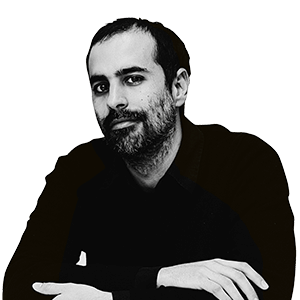Michel Gondry: "Artificial intelligence will ruin our lives"
French director premieres 'Maya, donne-moi un titre' at Berlinale, an animated film inspired by his daughter


Berlin Film FestivalThe last few weeks have not been easy for you. Michel Gondry. After having filmed a musical based on Pharrell Williams' childhood, Golden, one of the most anticipated releases of 2025, Variety revealed a few days ago that the editing had been cancelled and the film would never be released because the producers and Gondry considered that the material was not up to expectations. To dry the sorrows of such an ambitious and frustrated project, there is nothing better than to present another one at the antipodes: Maya, give me a title, a long animated film that collects the animated shorts stop motion that Gondry has been making for years for his daughter Maya, hand-animated pieces with colored cardboard, scissors, adhesive tape and a smartphone. The French director introduced him to the press at the Berlinale, although he did not accept "questions about Pharrell".
"Of all my friends, I was the last one to buy one smartphone"Gondry explains in the film. Resistance gave way to enthusiasm when he discovered the mobile phone's potential to make homemade animations with the function accelerate. And when he was away from home, he would send animated messages that Maya would watch with her mother, who would read the texts to her as if it were a story. Over time, the pieces became more sophisticated, as did the mechanics: from a certain point on, Maya would invent the titles of the stories that her father animated. For example: Maya watches the earthquake, Maya makes a bird, Maya takes a bath, Maya the mermaid...And the results? Surrealist deliriums with the charm and imaginative power of two children: Michel and Maya.
"The titles have to add something, because then he has to put them in the film or it wouldn't look good, but the truth is that I didn't think about them too much," admits Maya Gondry in Berlin, who is accompanying her father in the promotion. "My friends have seen the film because it has already been released in France," he explains in English that, at 10 years old, is much better than his father's. "Maya putting the titles is not a limitation but an incentive," says the director. "In creation, limitations are liberating. I would never dare to imagine a story in which Maya carries a boat loaded with ketchup so concentrated that it falls into the sea and turns it red. But when she gives me a title like this, I can't imagine a story in which Maya is carrying a boat loaded with ketchup so concentrated that it falls into the sea and turns it red. Maya in the sea with a bottle of ketchup
A year ago, Maya told her father she was done with animation. “It was devastating for me,” Gondry says. “After a month, she changed her mind, but for weeks I felt a huge emptiness because, having insomnia, I would spend hours each night drawing and animating Maya’s films while listening to Russian literature podcasts.”
From Noam Chomsky to Maya
Gondry already presented an animated film at the Berlinale 12 years ago and it was also a kind of dialogue, but with the father of linguistics, Noam Chomsky. "I animated it to give meaning to what Chomsky was saying, which was very abstract," recalls the director. His love for animation goes back a long way, however. "When you see a drawing, it's just a drawing, but when you make a drawing, and another, and animate them... It's magic," he says. "And every time you do it you have the same feeling." The fact that his animation style is so artisanal lacks any vindictive intent. "As I said before, limitations stimulate me, but in a more complex project I would use the computer, I'm not nostalgic for traditional animation."
He does, however, see the arrival of artificial intelligence (AI) with concern. “Those who will suffer the most from the effects of AI will be ordinary workers,” he says. “In the hotel where we are now, for example, there is no one, just a computer. AI is devaluing human beings and will ruin our lives. Creative people will continue to work, but there are only a few of us.” And he has always been creative: he loved inventions so much that as a child he tried to mix the two things he liked most in the world: milk and orange juice. “Not bad, Dad!” his daughter tells him when she feels it. But in the end she smiles; after all, he must think, he is like a child.
